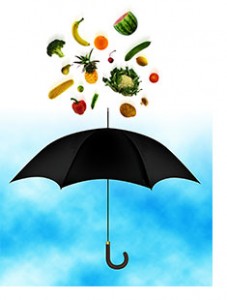Definition of Food Safety Expanding Due to Consumer Awareness
 The last decade has produced a revolution in North American consumers’ relationship to the food they purchase and consume and we’re finding that today’s consumers are intensely focused on the relationship of their diet to their health. They read and evaluate food labels before selecting products for their grocery carts to the extent that foods that were once only popular with hippies have now gone mainstream.
The last decade has produced a revolution in North American consumers’ relationship to the food they purchase and consume and we’re finding that today’s consumers are intensely focused on the relationship of their diet to their health. They read and evaluate food labels before selecting products for their grocery carts to the extent that foods that were once only popular with hippies have now gone mainstream.
The implications for our economy go beyond the grocery store, however.
Microbiologists, food safety and quality assurance professionals, and production, retail and restaurant managers have traditionally focused their attention on ensuring that food is “safe” from contamination, whether by pathogens, foreign objects, tampering or other physical threats. Their goal has been to protect consumers from food poisoning or injury from foreign objects like broken glass or metal fragments hidden in a food product.
But from a consumer viewpoint these days, food safety is a much broader concept. Of course, consumers don’t want to be hospitalized because of a listeria outbreak or from swallowing a piece of glass. They take this level of food safety for granted except when national recalls hit the news.
The consumers’ concept of food safety has broadened to include not just immediate risks of eating a piece of chicken contaminated with Salmonella, but the long term risks to their health posed by the type of food itself, the ingredients it contains and the way it is handled or processed.
Because of this, we see publicly traded food companies trumpeting on TV, in full page newspaper ads, and on social media, their recent decisions to remove additives or artificial colors from their offerings.
Consumers are purchasing organic and non-GMO labeled foods in such quantities that the food giants have been quickly acquiring smaller companies like Amy’s Kitchen and Applegate Farms – successful pioneers of the organic, gluten-free, antibiotic-free, no-taste enhancers, etc. healthy food movement.
In addition, it is not just about the food: moms and dads are worried about chemicals they had never heard of before like BPA and phthalates in baby bottles, water bottles, cans and other food packaging.
The implications of all this are huge: everyone from the designers of food safety curricula in universities to those on the front lines in the food industry are beginning to look at food safety as an issue that has a powerful effect on our long term health. With its expanded definition, food safety has become a profession and field with limitless possibilities for innovation.
About the Author
Susie Hoeller is an international business attorney. She counsels companies, including food companies on regulatory compliance and negotiates contracts and intellectual property licenses. Ms. Hoeller was raised in Montreal, Quebec. She is a graduate of Vanderbilt Law School and holds law licenses in five states. Currently, she is a member of a Food Policy Advisory Council in Pasco County, Florida. For more information: see, www.hoellerlaw.com.
Interested in more articles like this? Visit GFSR’s web site today!

Categories: Food Safety
Tags:



